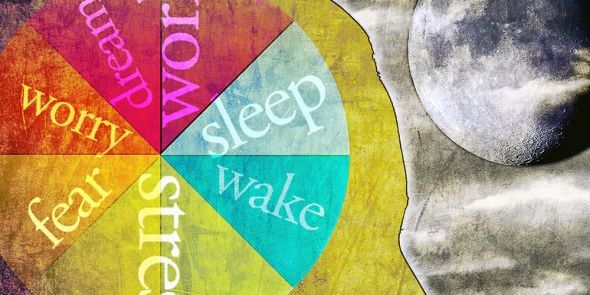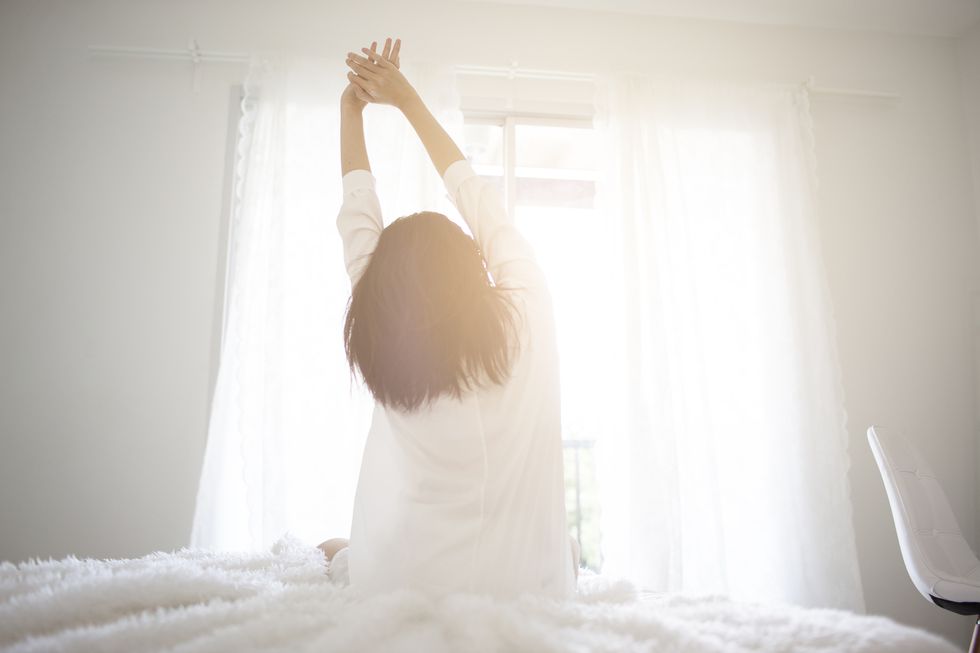It’s been a long, tiring day and you’re feeling shattered. Finally, you crawl into bed, physically exhausted and ready for a good night’s sleep… only to find your mind has other ideas. Instead of drifting off into weightless slumber, your brain fires up, your pulse quickens and your head becomes crowded with endless worries that you thought had been parked for the day.
“Around 80% of people say their worries whirlwind out of control at night,” says Nicky Lidbetter, chief executive of support group Anxiety UK. “With stress, we tend to worry about a specific, tangible problem. But with anxiety, we’re less aware of what we’re worrying about, so our reaction becomes the problem and we start feeling anxious about being anxious.”
And even if we do initially drop off, those worries can still crowd in if we wake up during the night. “The classic time to wake up seems to be between 2am and 4am,” adds Dr Nerina Ramlakhan, author of Fast Asleep, Wide Awake. “Suddenly your brain starts to become very active and problems that may well be solvable during the day become huge worries – made worse by the fact that you can’t sort them out there and then.”
Here’s what to do when your body says sleep but your mind’s not listening…
1. Prep for sleep
Sleep is a natural physiological process, but you can help it along and avoid additional anxiety by having a set wind-down routine. The goal of this is to relax your body and prime it for sleep. So if you’re going to bed at 10pm-11pm, set aside 30 minutes to an hour for the same nightly pre-sleep routine. This may involve things such as taking a shower, washing your face and brushing your teeth, moisturising your face and climbing into bed with a book.
Psychologist Susanna Halonen says, “The more identical you can make every evening, the more you train your body to prepare for sleep and the easier it will be to achieve.”
2. Say no to the nightcap
“Alcohol is a stimulant as well as a sedative,” says Dr Guy Meadows of The Sleep School. “While many people use it to fall asleep, it is also metabolised so quickly that it can leave the body craving more.” So when we drink alcohol close to bedtime, we are more likely to wake up in the early hours, leaving us primed for a night-time anxiety attack. As a rule of thumb, it takes an hour to process one unit of alcohol, so, to be on the safe side, have a last glass of wine at 7pm if you intend to go to bed at 10pm.
3. Don’t clock-watch
If you simply can’t get back to sleep because your head is buzzing with worry, don’t look at the clock – you’ll fret even more. “Just get out of bed and go into another room for ten minutes,” Dr Ramlakhan says. “Leaving the environment you feel uncomfortable in breaks the association with worries.”
But don’t start checking your phone or scrolling through Facebook. Go into the living room and read a few pages of a light-hearted book under a dim light. When you feel calm, return to your bed and turn over your pillow. “It will feel cooler on your face and creates a separation from the last time you were lying there,” Dr Ramlakhan says.
4. Ensure digital blackout
Don’t look at your phone or tablet for an hour before bed, and then put it out of reach so you won’t be tempted to pick it up in the night. LCD screens emit blue light, which is the same type as sunlight. “Our body clock gets confused and starts thinking it’s daytime again, so it inhibits the sleep hormone melatonin and releases the waking hormone cortisol,” says Dr Guy Meadows of The Sleep School.

5. Put worries on paper
Write down what’s on your mind at least an hour before bed. By committing thoughts to paper, you control them, meaning they live there instead of in your head. Dr Guy Meadows suggests giving each worry a nickname, too, such as ‘The Nag’.
“We can’t help these thoughts coming in, but they’re only a problem when they start to consume us,” he says. “By giving them names, you speed up the process of defusion, so when unpleasant thoughts crop up, you can just acknowledge them – ‘oh, there’s The Nag again’ – and go back to what you’re doing.”
6. Plan for tomorrow
Have a clear plan for the next day, says psychologist Susanna Halonen. “If you know what priority number one and two are, you’ll spend less time worrying because you know those are the first two things you’ll get done. The more you turn this into a habit, the more you realise that if you plan ahead and prioritise effectively, you can get the important things done more easily. This will lower your anxiety and help you sleep better.”












